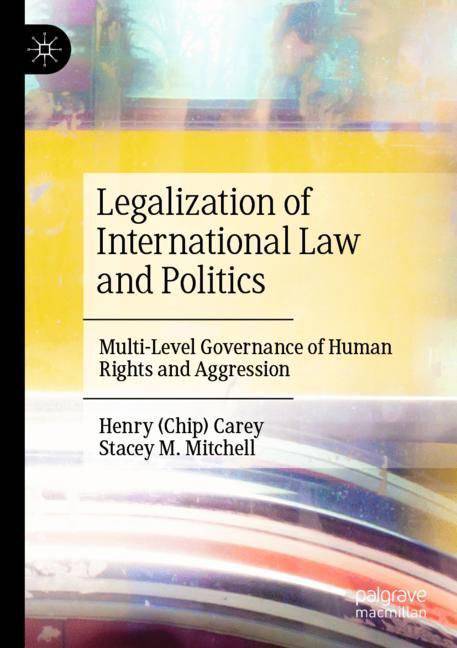
Je cadeautjes zeker op tijd in huis hebben voor de feestdagen? Kom langs in onze winkels en vind het perfecte geschenk!
- Afhalen na 1 uur in een winkel met voorraad
- Gratis thuislevering in België vanaf € 30
- Ruim aanbod met 7 miljoen producten
Je cadeautjes zeker op tijd in huis hebben voor de feestdagen? Kom langs in onze winkels en vind het perfecte geschenk!
- Afhalen na 1 uur in een winkel met voorraad
- Gratis thuislevering in België vanaf € 30
- Ruim aanbod met 7 miljoen producten
Zoeken
Legalization of International Law and Politics
Multi-Level Governance of Human Rights and Aggression
Carey, Stacey M Mitchell
Paperback | Engels
€ 244,45
+ 488 punten
Uitvoering
Omschrijving
This book provides an expanded conceptualization of legalization that focuses on implementation of obligation, precision, and delegation at the international and domestic levels of politics. By adding domestic politics and the actors to the international level of analysis, the authors add the insights of Kenneth Waltz, Graham Allison, and Louis Henkin to understand why most international law is developed and observed most of the time. However, the authors argue that law-breaking and law-distorting occurs as a part of negative legalization. Consequently, the book offers a framework for understanding how international law both produces and undermines order and justice. The authors also draw from realist, liberal, constructivist, cosmopolitan and critical theories to analyse how legalization can both build and/or undermine consensus, which results in either positive or negative legalization of international law. The authors argue that legalization is a process over time and not just a snapshot in time.
Specificaties
Betrokkenen
- Auteur(s):
- Uitgeverij:
Inhoud
- Aantal bladzijden:
- 306
- Taal:
- Engels
Eigenschappen
- Productcode (EAN):
- 9783031171710
- Verschijningsdatum:
- 3/01/2024
- Uitvoering:
- Paperback
- Formaat:
- Trade paperback (VS)
- Afmetingen:
- 148 mm x 210 mm
- Gewicht:
- 376 g

Alleen bij Standaard Boekhandel
+ 488 punten op je klantenkaart van Standaard Boekhandel
Beoordelingen
We publiceren alleen reviews die voldoen aan de voorwaarden voor reviews. Bekijk onze voorwaarden voor reviews.









